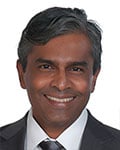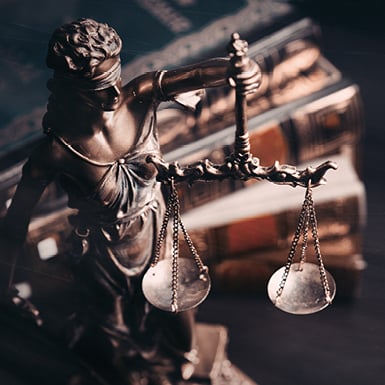In the
recent Court of Appeal decision in Bi Xiaoqiong (in her personal capacity
and as trustee of the Xiao Qiong Bi Trust and the Alisa Wu Irrevocable Trust) v
China Medical Technologies, Inc (in liquidation) and another [2019] SGCA 50,
the Court of Appeal dismissed an appeal against the grant of a Mareva
injunction in support of foreign court proceedings.
Background
The second
respondent, CMED Technologies (“CMED”)
was the wholly owned subsidiary of the first respondent, China Medical
Technologies Inc (“CMT”)
(collectively “Respondents”). Mr Wu Xiaodong had founded CMT and had run it
until it was wound up in 2012. The
appellant was Ms Bi Xiaoqiong, the former wife of Mr Wu.
After
investigating the affairs of CMT and CMED, the liquidators of CMT took the view
that members of the former management had fraudulently misappropriated a large
sum of funds from the Respondents. The Respondents then started a series of
legal proceedings against these persons in Hong Kong and Singapore. including a
set of proceedings against Mr Wu and Ms Bi in Singapore. The Respondents alleged that the funds had
been paid out of the Respondents’ accounts through a series of transactions
controlled by CMT’s former management. The
recipients of some of the funds allegedly included Mr Wu and Ms Bi.
In the proceedings
commenced in Singapore, the Respondents applied for Mareva injunctions against
Mr Wu and Ms Bi preventing them from disposing of their assets in Singapore. The judge granted the Respondents’ application
for a Mareva injunction against Ms Bi accepting that the court had the power to
grant a Mareva injunction in aid of foreign court proceedings. The judge further granted the Respondents’
application to stay the legal proceedings in Singapore, as it was not disputed
that Hong Kong was the more appropriate forum for the dispute.
Ms Bi
appealed this decision contending that the Court did not have such power to
grant a Mareva injunction against her, and that even if the Court had the
power, the injunction should not have been granted.
Court’s decision
The Court
of Appeal dismissed the appeal and found that the High Court did have this
power which was conferred under section 4(10) of the Civil Law Act (Cap 43). The Court’s power is broad and is subject to
at least the following conditions:
- The court must have personal jurisdiction over the defendant.
- The plaintiff must have a reasonable accrued cause of action against the defendant in Singapore.
In relation
to the second condition, there is no requirement that the cause of action
against the defendant must be terminated in a judgment obtained from the same
court that grants the injunction. Although the Respondents’ application to stay
the Singapore legal proceedings carried the possibility that no judgment would
eventually be granted by the Singapore Court, it did not deprive the court of
its jurisdiction to grant a Mareva injunction.
Conclusion
In circumstances where a stay of action is sought, the court retains the residual jurisdiction over the underlying cause of action. The Court of Appeal was of the view that this was a sound juridical basis on which to ground the court’s power to grant a Mareva injunction and was consistent with the recognition that a Mareva injunction in aid of foreign proceedings is still ultimately premised on, and in support of, proceedings in Singapore. The expression “in aid of foreign proceedings” in a Mareva injunction acknowledges that a plaintiff who obtains a Mareva injunction intends to employ it in aid of foreign proceedings, which will assist the plaintiff to enforce a foreign judgment over assets in Singapore.

Author
Nandakumar Ponniya
Nandakumar (Kumar) Ponniya heads the Dispute Resolution Practice of Baker & McKenzie in the Asia Pacific.
He is widely acclaimed in international arbitration and cross-border litigation, with extensive experience in the areas of construction, technology, energy and financial services. His practice includes dealing with disputes arising from corporate and commercial matters, and managing multijurisdictional restructuring and insolvency. With over 25 years' experience, Kumar has handled disputes and matters across various industry sectors and jurisdictions, serving clients in Asia and beyond. He is qualified to practice in Singapore, England and Wales and New York; and is also a fellow of the Chartered Institute of Arbitrators.
Kumar is listed as a leading international arbitration lawyer in the Legal 500 Asia Pacific, is recognized for his capabilities in Construction and in Arbitration by Chambers Asia Pacific, as well as named a Litigation Star by Benchmark Litigation Asia Pacific for Construction and for International arbitration. Chambers Asia Pacific commended "the 'well respected' Nandakumar Ponniya for having led commercial and investment arbitrations’ and notes that he "stands out for his quickness and perspicacity". He has also been described by clients as having "excellent advocacy skills" (Chambers Asia Pacific), being "intellectually sharp and street smart" (Legal 500) and "extremely technically proficient and commercially savvy" (Chambers Global). He has also been listed in the Guide to the World's Leading Experts in Commercial Arbitration. Kumar is also ranked as a Recommended practitioner by Who's Who Legal in its Southeast Asia: Arbitration guide. Kumar also regularly sits as arbitrator and has acted as sole arbitrator and as presiding arbitrator under various arbitral rules and regimes.
In litigation, Kumar has appeared as counsel before all divisions of the Singapore Courts, including the Singapore International Commercial Court and the Court of Appeal. In arbitration, he has sat as presiding arbitrator in high value disputes and as counsel, has had conduct of international arbitrations involving all the major arbitral rules with hearings in multiple jurisdictions. Further, Kumar is skilled in a range of alternative dispute resolution mechanisms, including adjudication and mediation, to help clients resolve complex disputes and avert the need for time-consuming and costly litigation or arbitration. In addition to disputes, Kumar has vast experience in front-end risk advisory work and risk management or mitigation.
Aside from practice, Kumar has served as an adjunct assistant professor at various universities such as the National University of Singapore, the Singapore Management University, Universitas Pelita Harapan (UPH) and ESSEC Business School.
Kumar also serves on statutory tribunals such as the Law Society’s Inquiry Panel.
Kumar has a broad focus on dispute resolution with a focus on international arbitration, commercial litigation, and corporate restructuring and insolvency. Kumar has an in-depth understanding of the legal and regulatory frameworks of the major Asian markets. His wealth of experience is drawn from handling disputes for government, state-owned enterprises, multinational corporations and regional industry leads arising from a variety of commercial transactions and investments, as well as complex engineering and development projects in Singapore, ASEAN and the wider Asia Pacific region.
He has had conduct of international arbitrations involving all the major arbitral rules including ICC, SIAC, HKIAC, KLRCA, BANI, UNCITRAL and ICSID; with hearings in multiple jurisdictions such as Singapore, Kuala Lumpur, Jakarta, Hong Kong, London and Mexico City. He also advises on investment arbitration, particularly in relation to matters in Asia.
Kumar's litigation experience encompasses disputes in the areas of corporate and commercial law, banking and financial services, construction law and corporate restructuring. He has acted for clients across various industry sectors such as banking and financial services, infrastructure and construction, oil and gas, power, technology and telecommunications.
He is well-versed in the mechanics of corporate restructuring and has a keen understanding of insolvency regimes across the region. He has significant experience with several large and complex restructuring deals relating to major projects in Singapore and the region, as well as the distressed debt restructuring of many large corporations in Asia.





